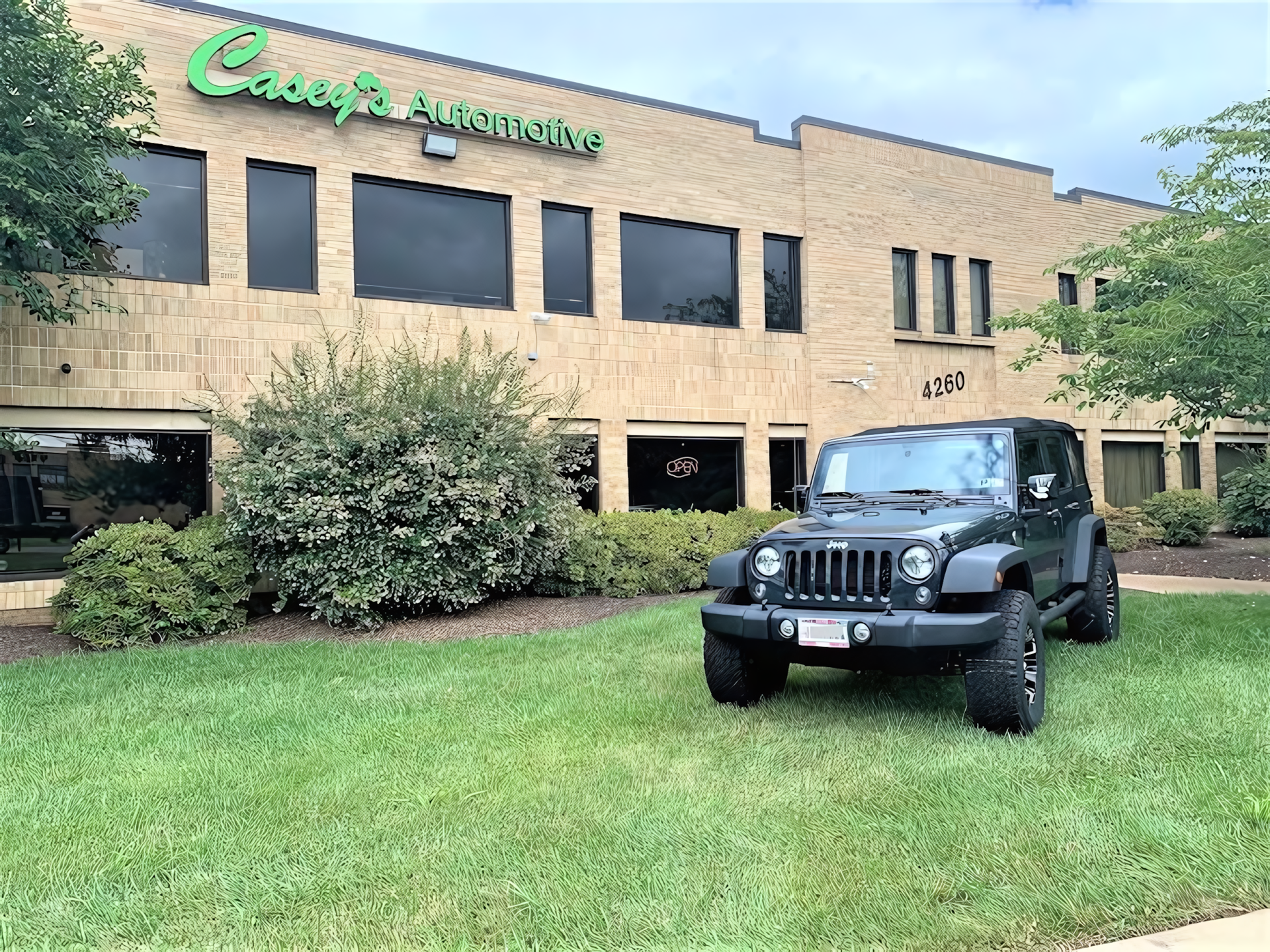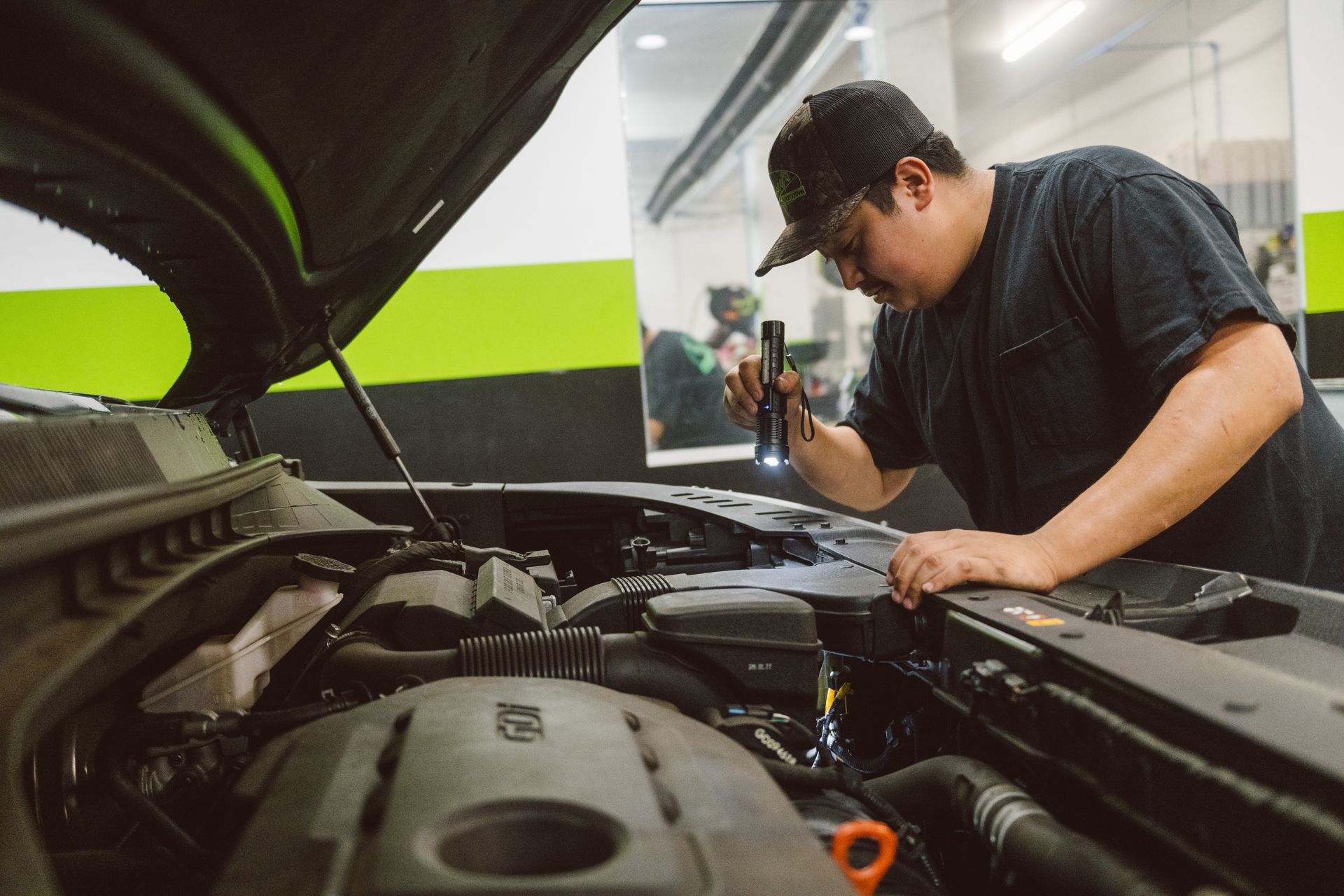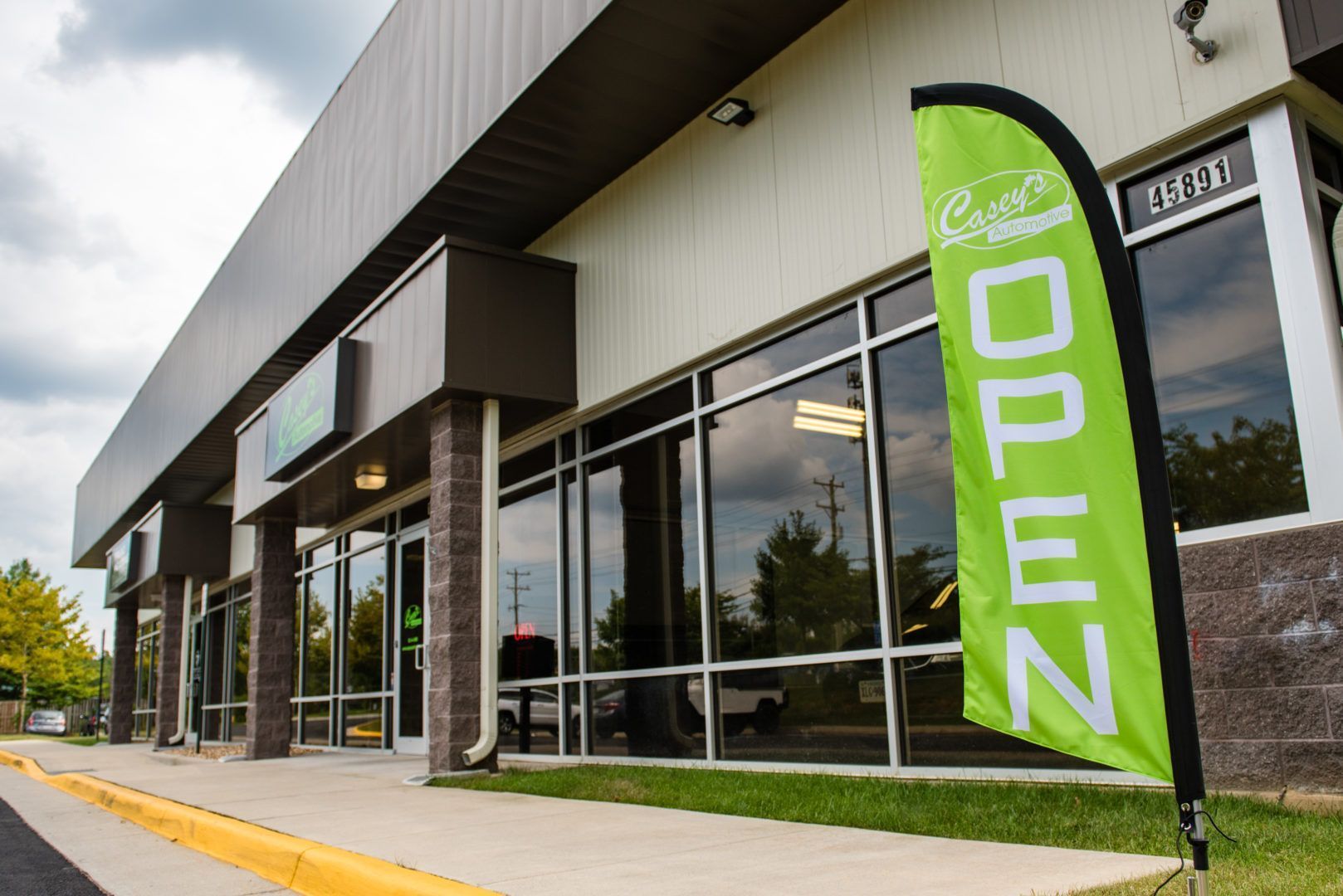Blog Layout
September 2, 2018
Your brakes are a complicated system on today’s cars and there are many reasons why they may not feel like they are performing as they should. In this short blog, we want to tackle why your brake pedal may not feel like it should while braking.
First, let’s chat about how a common brake system works and what components are in the system. Most systems are hydraulic with some sort of air vacuum booster. For the simplest description of how they work, when you press on the brake pedal the booster helps the driver apply hundreds of pounds of pressure to the hydraulic components. The hydraulic system, (brake master cylinder) pushes fluid down towards the brake calipers and wheel cylinders via the brake lines. The pistons within these components are what apply the brake pads and or shoes to the rotating brake disc and brake drums. When you release your foot from the brake pedal, the booster relieves pressure to the master cylinder and fluid is allowed to return back to the brake fluid reservoir.
Why are brakes hydraulic and not air? Hydraulic systems are great for hundreds of pounds of pressure without compressing and losing the pressure. If the air was used instead of hydraulic, the air would compress easily as it would if you pressed on a balloon. Hydraulics allow tremendous pressures to be applied without compressing.
A common symptom of a failed brake component is a spongy brake pedal. Most of the time this represents a hydraulic problem. There is a compromise in your brake hydraulic system causing it to leak brake fluid out and allowing air to get into the system. This will cause a fading brake pedal and is often described to the auto repair shop as a spongy brake pedal. While you push down on the brake pedal instead of all the pressure going to the brake pistons some will leak out and you will experience a pedal that goes to the floor. When releasing the brake pedal on a leaking system the returning motion will suck in air. Once the air is introduced to the system the brake hydraulics are no longer able to create the needed pressure to apply your brakes!
Another cause of a spongy brake pedal is sticking brake slides, pins, and other moving parts. Your brakes are only millimeters away from the braking surface under normal operation when the brake is applied. This short-travel allows for quick and smooth operation. If one of the pins in the brake caliper is stuck when you apply the brakes it will have longer to travel causing late braking and a spongy pedal. These moving parts should be inspected regularly and lubricated to help keep this from happening. Whenever a brake job is completed these parts should be either replaced if they are worn or if they are still in good shape, they can be cleaned and lubricated, and reused. Your automotive shop can help you decide the right action to take.
Most likely your car will be equipped with some sort of ABS (Anti-Lock Brake System.) Most modern cars come equipped from the factory with this benefit. When your ABS system malfunctions are can also cause a spongy brake pedal. Your ABS system is designed to allow the driver to maintain more control of the car in a high-speed stop. By measuring the wheel speed of each wheel when you are in a panic stop situation the ABS computer controls the brakes to keep the tires from locking up. Your ABS does this by releasing brake pressure on that wheel. This is important because a skidding wheel has less friction against the road surface and not only stops a car-less quickly but will not allow a driver to control the direction of the car. When your ABS malfunctions it can cause the brake pressure in the system to be released, and as the driver, you may feel very strange sensations with your brake pedal. Vibration, spongy pedal, the pressure pushing back while you are applying the brakes, can all be described. If you are feeling one of these sensations, see your automotive shop as soon as possible.
Recently we had a vehicle at Casey’s Automotive that had a sinking spongy pedal. After checking over the brake system we found the brake booster had failed. Usually when a brake booster fails you will experience a very hard pedal because the booster is not able to give you the assist it is designed for. This vehicle however was experiencing the opposite. When applying the brake pedal the brake pedal would sink and the vehicle was not easy to stop. The brake booster was full of fluid, destroying the inner diaphragm.
Bottom line cars a very complicated pieces of equipment. Your brakes are arguably one of the most important safety features and for best operation and safety you should have them checked at regular intervals and serviced when needed. It is our professional opinion at Casey’s Automotive brake problems should never be left unchecked. As soon as you feel a spongy brake pedal or any other braking abnormalities, take it in for service immediately.
Drive safe and happy motoring!
Discover top-notch auto services from oil changes to brake repair at Casey's Automotive in Virginia. Schedule your appointment online today!
Discover top-notch brake repair services at Casey's Automotive in Virginia. Ensure your safety with our expert maintenance. Visit us today!
Enhance vehicle safety with expert tire rotation at Casey's Automotive in Virginia. Improve performance and lifespan. Schedule an online appointment now!
Keep cool with Casey's Automotive in Virginia. Our expert AC system service ensures comfort during every drive. Schedule your appointment today!
Discover expert engine repair tips from Casey's Automotive in Virginia. Your trusted guide for auto care. Visit us today!
Discover expert tire maintenance tips at Casey's Automotive in Virginia. Optimize performance and safety with our knowledge. Visit us today!
Discover expert brake advice at Casey's Automotive in Virginia. Ensure your safety with our top-notch services. Schedule an online appointment now!
Ask a neighbor about us,
we're confident in what they'll say.








© 2025 Casey's Automotive. All Rights Reserved | Website managed by
Tekmetric
Follow us
Our Shop
4260A Entre Court, Chantilly, VA 20151
45891 Woodland Rd, Suite 130, Sterling, VA 20166
719 Walker Rd, Great Falls, VA 22066
List of Services
© 2024 Casey's Automotive. All Rights Reserved | Website managed by
Shopgenie
Follow us
Our Shop
Chantilly:
703-802-6300
4260A Entre Court, Chantilly, VA 20151
Sterling:
703-444-6900
45891 Woodland Rd, Suite 130, Sterling, VA 20166
Great Falls:
571-786-8001







